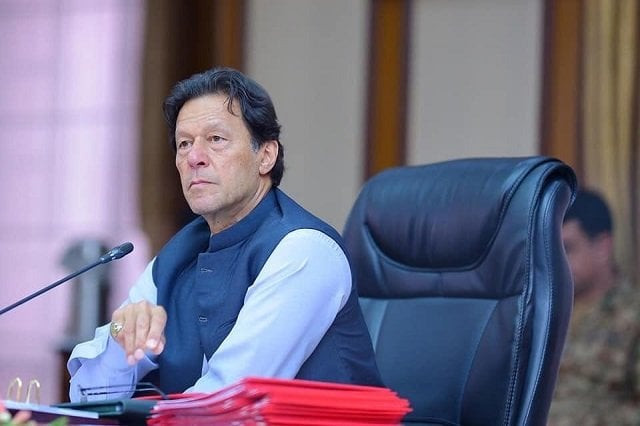Businessmen to meet PM Imran on zero-rated facility
Fail to convince finance adviser not to withdraw tax exemption

Prime Minister Imran Khan. PHOTO: INSTAGRAM/@imrankhan.pti
Leading textile lobbies, along with the Lahore Chamber of Commerce and Industry, met with Adviser to PM on Finance Abdul Hafeez Shaikh and informed him of the impact of withdrawing the facility. However, no breakthrough could be achieved in the meeting held at the Punjab Governor House on Saturday.
A leading businessman told The Express Tribune that even though they were not hopeful of convincing Shaikh, they had no option but to continue and try to emphasise their point of view.
“We are expecting a meeting with Prime Minister Imran Khan on Sunday; so hopefully he can understand our problem as he did before,” the businessman revealed.
He stressed the need for continuing the policies for ensuring sustainable growth, adding that like the previous governments, the current one too was changing its policies.
“Withdrawal of the sales tax exemption and a threat to further increase the standard sales tax to 18% can kill fresh investments and drive the country’s exports off course due to a huge price disparity,” he remarked. On the other hand, the LCCI president was of the view that the industry could not be competitive globally unless it was competitive in its own country.
“The industry owns the local market, which unfortunately is flooded with smuggled, under-invoiced or imitation products. The industry is uncompetitive because of a heavy load of taxes, levies, advance and withholding taxes on raw material and energy,” he said.
The officials also emphasised the need for releasing tax refunds of the business community to restore the trust in the tax collector.
“We have learnt the government plans to introduce a scheme for the payment of refunds against the export proceeds (remittances) through the State Bank (Bangladesh model). We are concerned this system has not been tested yet,” stated a businessman.
They said customs duty on intermediary products should be reduced so that the domestic industry was able to import quality material, components and machinery from across the world at the same duty rate at which it imported under different free trade agreements (FTAs).
Published in The Express Tribune, June 2nd, 2019.
Like Business on Facebook, follow @TribuneBiz on Twitter to stay informed and join in the conversation.



















COMMENTS
Comments are moderated and generally will be posted if they are on-topic and not abusive.
For more information, please see our Comments FAQ